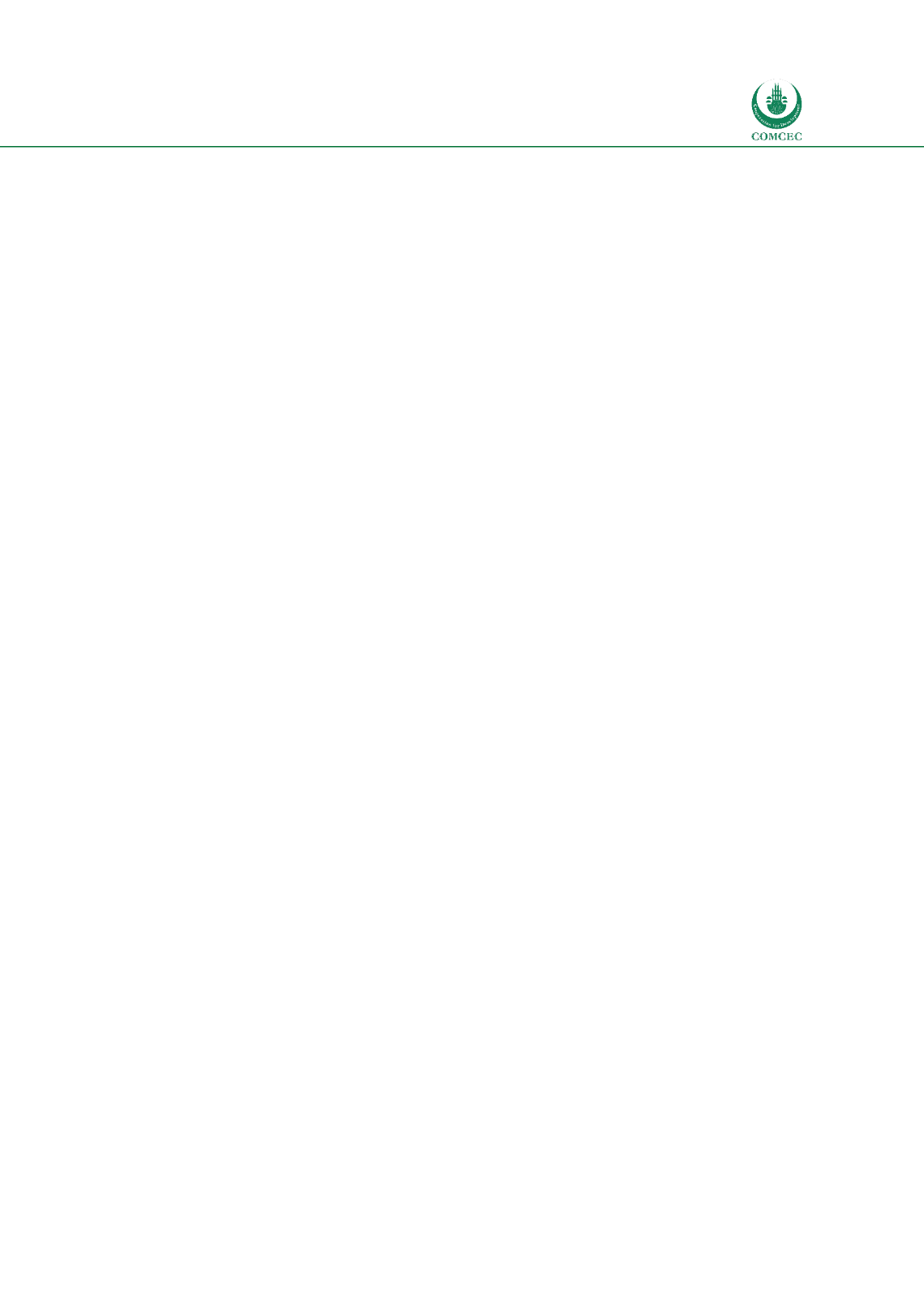

National and Global Islamic Financial Architecture:
Prolems and Possible Solutions for the OIC Member Countries
121
business in a conventional way. Saudi Arabia does not have independent laws to deal with
Islamic banks.
Art 2 of the Royal decree No.23 Dated 15/12/1957
established the charter of SAMA says “The
Saudi Arabian Monetary Agency shall not pay nor receive interest, but it shall only charge
certain fees on services rendered to the public and to the Government, in order to cover the
Agency's expenditures. Such fees shall be charged in accordance with a regulation passed by
the Board of Directors and approved by the Minister of Finance”. SAMA also regulates the
cooperative insurance companies sector in Saudi Arabia. The Law on Supervision of
Cooperative Insurance Companies (LSCIC 2003) was approved by Royal Decree no. M/32
dated 01/08/2003 which set the stage for the legal framework of the cooperative insurance
companies sector in Saudi Arabia. LSCIC articulates in Art 1 that offering insurance services
should be in accordance with the principles of Islamic law. The cooperative insurance law and
its implementing regulations give SAMA wide-ranging powers such as the licensing, regulating
and supervising of the insurance sector.
Beside SAMA being the principal regulator of the insurance market, there are other regulatory
authorities involved. Article 1 of the Law on Supervision of Cooperative Insurance Companies
(LSCIC) states “Insurance in the Kingdom shall be undertaken through registered insurance
companies operating in a cooperative manner as it is provided within the article establishment
of the National Company for Cooperative Insurance promulgated by Royal Decree M/5 dated
17/5/1405 H, and in accordance with the principles of Islamic Shari’a”. The Council of
Cooperative Health Insurance shares the responsibility of supervising the medical insurance
line, providing continuous technical and medical follow-up to all those concerned with the
system, and supporting the ongoing efforts to preserve the rights of all insured. Similarly,
Capital Markets Authority (CMA) is mandated to ensure that all insurance companies are
compliant with the Saudi Capital Market Law (SAMA 2015).
In addition to the responsibility of SAMA towards the banking and insurance, it is entrusted
with regulating and supervising the real estate financing company and finance companies
under the Finance Companies Control Law 2012 (FCCL 2012) (SAMA 2016b). Article 2 of FCCL
asserts that finance companies licensed under the law should engage in finance activities in a
manner not conflicting with the principles of the Sharia as defined by Sharia committees.
Article 3 of FCCL stipulates that companies engaging in finance activities should observe the
principles of Shariah that are agreed upon by the selected Shariah Committee by the company.
SAMA’s market restructuring initiative resulted in a significant development of the non-bank
financing sector. SAMA has licensed a number of banks, real estate finance companies and
other finance companies that would carry out one or more finance activities according to its
list or approval activities. Under this law SAMA can exempt banks being banned from carrying
out real estate financing.
The Capital Market Law 2003 (CML 2003) issued by Royal Decree No. M/30 dated 2 July 2003
governs the capital markets activities in Saudi Arabia. While sukuk is regulated and governed
by CMA under the code ‘Offers of Securities Regulations’, no specific attention is given to it as a
Shariah compliant product. In fact, the rules mainly cover the procedures for issuing securities
rather than focusing on their form and type. The CMA regulates sukuk and bonds and both are
subject to the same rules and principles.
















